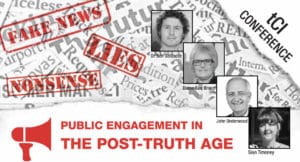News & Insights
Providing a ‘comprehensive library service’: what does it mean?
Quite unexpectedly, and just before a General Election was called, the Department for Culture, Media & Sport (DCMS) launched an inquiry into the library closures by Swindon Borough Council and Lancashire County Council. Both councils decided in 2016 that they needed to close the majority of their council run libraries due to financial constraints. It is all the more unexpected as the last and only Government inquiry into library closures was in 2009. The inquiries were instigated by official complaints from concerned residents and even an MP. According to the complainants, both councils are failing to meet their statutory duty to provide for a “comprehensive and efficient library service” under the Public Libraries and Museums Act 1964. But what does this actually mean?
According to the 1964 Act, a “library authority shall in particular have regard to the desirability—
(a) of securing, by the keeping of adequate stocks, by arrangements with other library authorities, and by any other appropriate means, that facilities are available for the borrowing of, or reference to, books and other printed matter, and pictures, gramophone records, films and other materials, sufficient in number, range and quality to meet the general requirements and any special requirements both of adults and children; and
(b) of encouraging both adults and children to make full use of the library service, and of providing advice as to its use and of making available such bibliographical and other information as may be required by persons using it;
This, of course, does not tell us what a ‘comprehensive library service’ in practice means. However, Mr Justice Ousely, in Bailey v London Borough of Brent, interpreted it to be as follows:
“A comprehensive service cannot mean that every resident lives close to a library. This has never been the case. Comprehensive has therefore been taken to mean delivering a service that is accessible to all residents using reasonable means, including digital technologies. An efficient service must make the best use of the assets available in order to meet its core objectives and vision, recognising the constraints on council resources. Decisions about the Service must be embedded within a clear strategic framework which draws upon evidence about needs and aspirations across the diverse communities of the borough.”
In Draper v Lincolnshire CC, the Court argued that “The key is reasonable ability to access the service by all residents of the county. This means that distances and time taken to reach a library must be reasonable and any particular problems, whether physical disabilities, or created by age or family considerations, must be capable of being met.”
In addition to what the Libraries Act and the Courts constitute as ‘comprehensive’, there are several legal obligations to consider, such as:
- Equality Act 2010 – section 149 (Public Sector Equality Duty)
- The Revised Best Value Duty 2015
- Localism Act 2011
What many councils might be unaware of is that DCMS wants to be informed of proposals to change library services before public engagement takes place in order to assist the Secretary of State. Councils are asked to demonstrate their:
- plans for consultation alongside a needs assessment
- consideration of different options to sustain a library service in their area
- analysis of/and impact assessment of the proposals
In considering how best to deliver this statutory duty, councils are responsible for determining, through consultation, the local needs and must deliver a modern and efficient library service. In the Lancashire Inquiry, the complaints were that the Council was predetermined and had no serious intention whatsoever to take other options into account. They further argue that the Council failed to consult with other Councils facing the same issue; that the final consultation analysis was incomplete; that the Council did not communicate to residents that certain libraries might be closed; and that library closures would create hardship for the elderly who are required to use public transport to access a library.
From what we can tell from the questions asked by the Secretary of State to Lancashire Council, it is clear that the focus of their inquiry is on the public consultation done by the latter, which led to a reduction of 29 council-run libraries. Of the 19 questions, five focused on the consultation:
- Further explanation of the consultation process, including how LCC sought to engage with residents to secure feedback and ensure input could easily be provided by all sections of the community;
- What methods of feedback/opportunities were available to residents to respond to the consultations?
- How was the response from the public to the consultations used to inform the proposals and what specific key changes were made to the original library proposals following the public consultations?
- Were agreed changes communicated to residents, and if so, how?
- LCC has indicated that the revised level of library service is “well beyond any reasonable view of what a minimum statutory service must be”. Why is LCC of this view and what information supports that view?
What constitutes a “comprehensive and efficient library service” is very case-specific, as the two quoted legal judgments is evidence of, but in determining so, a local authority has to make sure their numbers add up, that other options have been considered, that other struggling local authorities have been consulted for advice, that a Equality Impact Assessment has been carried out, and that any public consultation has to comply with the Gunning Principles. Nothing out-of-the-blue there, right? Will the next Government adopt a similar approach to library services?




